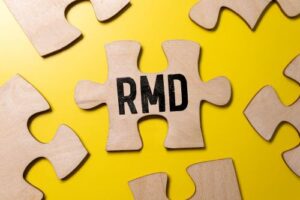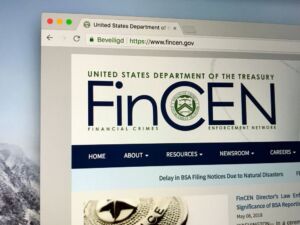IRS Issues RMD Guidance and Transition Relief
 The SECURE Act 2.0 passed at the end of 2022 called for additional changes to retirement savings designed to benefit workers and employers. These include an increase in catch up contribution amounts, automatic enrollment, automatic portability, matching student loan payments, and required minimum distribution (RMD) updates. Many changes become effective over a five-year period, but there were some which became effective immediately.
The SECURE Act 2.0 passed at the end of 2022 called for additional changes to retirement savings designed to benefit workers and employers. These include an increase in catch up contribution amounts, automatic enrollment, automatic portability, matching student loan payments, and required minimum distribution (RMD) updates. Many changes become effective over a five-year period, but there were some which became effective immediately.
One of these is the increase in the age at which RMDs must be taken. However, many plan administrators have not been able to accommodate the change meaning erroneous RMDs may been issued. To address the concern, the IRS recently issued Notice 2023-54, which provides transitional relief including how to address RMDs erroneously made to participants. To help clients, prospects, and others, WhippleWood CPAs has provided a summary of the key details below.
Main Takeaways from Notice 2023-54
In Notice 2023-54, taxpayers received some relief around required minimum distributions (RMDs) and rollovers that apply to Section 107 of SECURE 2.0. This advanced release will also be published in Bulletin 2023-31, coming out on July 31, 2023.
The enactment of Section 107 of SECURE 2.0 changed what was considered RMDs for certain individuals. For people who received distributions in 2023 that were formerly characterized as RMDs, but are not actually RMDs after this new section was enacted, this news provides some relief and renewed rollover eligibility.
Relief applies to distributions recipients received from plans between January 1 and July 31, 2023, for participants born in 1951 that were treated as ineligible for rollover because the distributions were considered RMDs. This also applies to surviving spouses who received these distributions. With this notice, participants have until September 30, 2023, to rollover the part of the distribution that was mischaracterized into an IRA or other qualified retirement plan to avoid paying taxes on it.
Generally, the rollover period is 60 days, but with Notice 2023-54, the deadline for rolling over the mischaracterized distribution portion is September 30, 2023. Even if the IRA owner rolled over a distribution within the last 12 months, the participant or surviving spouse can do another rollover. However, this will prevent the participant from rolling over another distribution in the 12 months following. They can still make a trustee-to-trustee transfer directly.
Additional Guidance from Notice 2023-54
Other guidance was also made in Notice 2023-54 about RMDs, including the following:
- Defined contribution (DC) plans that didn’t make a specified RMD will not be determined to have failed to satisfy IRC Section 4019(a)(9)
- Under IRC Section 4974, taxpayers who did not take a specified RMD will not be subject to an excise tax
What is a Specified RMD?
Specified RMDs are calculated differently from regular RMDs and are required for specific types of beneficiaries, such as non-spouse beneficiaries.
Distributions that would be required to be made under Code Section 401(a)(9) in 2023 would be considered specified RMDs for DC plans or IRAs that abide by the rules of Section 401(a)(9)(H).
If the designated beneficiary wasn’t using the lifetime or life expectancy payments exception (which means a longer distribution period) and the IRA owner or employee died in 2020, 2021, or 2022, a specified RMD would have been required to be made to the beneficiary.
When Will Final Regulations Take Effect?
Final regulations regarding RMDs will apply when determining RMDs in calendar years starting either in 2024 or later. This provides relief at least through the current year or participants and beneficiaries.
Contact Us
The SECURE Act 2.0 calls for several important changes to make access to employer sponsored retirement plans easier while modifying other rules to accelerate savings. The recently issued guidance provides important details plan sponsors need to navigate the process. If you have questions about the information outlined above or need assistance with your next benefit plan audit, WhippleWood CPAs can help. For additional information call 303-989-7600 or click here to contact us. We look forward to speaking with you soon.
About the Author

Rick Whipple CPA
Rick’s career in public accounting began in 1978. He was a co-founder of WhippleWood CPAs in 1981 and became its CEO in 2004. His experience as an entrepreneur and small business owner over the span of 40 years is vital to his success as a CPA and small business advisor.



